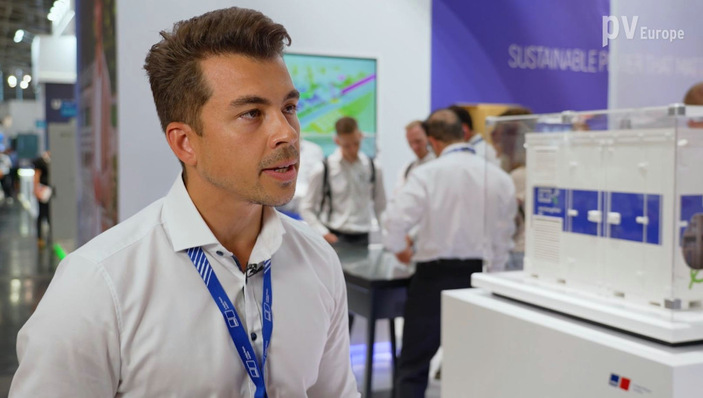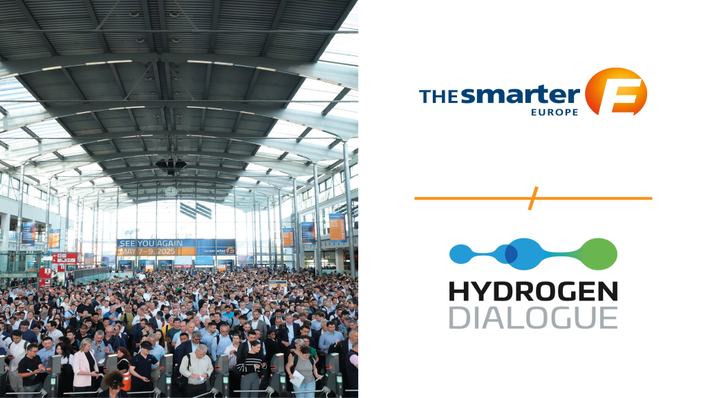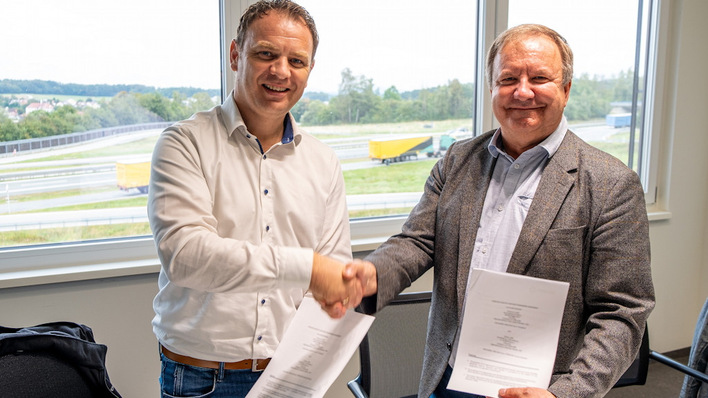The storage show EES and the Intersolar in Munich was absolutely packed. About 420 exhibitors presented products for storing solar electricity, and 36 of those were vying for this year’s EES Award. When it came to the power electronics and the integration of the batteries, the suppliers and contenders were presenting quite a broad range of concepts. What was not really a surprise was the clear trend towards lithium ion batteries that was predominant among the presentations and the competition for the award.
Energy Depot introduced a 10-kilowatt hybrid inverter which can be combined with battery packs of between 8.2 and 32.6 kilowatt hours. The engineers from Konstanz have dubbed the latest addition to their range Centurio. This inverter connects to the battery at 400 volts. The system runs symmetrically on three phases, i.e. feeds into the AC grid at an equal output (3.3 kilowatts per phase), and includes a smart metre, or more specifically, a sensor that monitors power flows at the point of connection to the grid.
Emergency power capability on three phases
This helps to prevent load imbalances. The inverter is also capable of supplying emergency power on all three phases. Efficiency between the solar generator and the grid that can be achieved is 98.1 percent. It is remarkable that such a high degree of efficiency is even possible at a partial load of 25 percent. Even at 10 percent load it still manages to be 97 percent efficient going from DC to AC.
If the Domus batteries are added to the setup, overall efficiency is still 95.4 percent at or above 20 percent partial load from the battery. The entire system is delivered turnkey-ready in shipping containers. So far, it is only designed to work with these Domus batteries, but in the future, the choice of batteries that can be integrated should expand to encompass the major suppliers on the market.
Minimal effort in setting up
Energy Depot are targeting commercial customers. These inverters can be endlessly recombined and thus the battery capacities that are managed is that much higher. This creates an assembly kit that can even be adapted to quite high storage or output. The effort for setting this up is relatively minimal: Two technicians are enough to install and connect the entire system.
The prices that the company quoted during the product launch were attractive and quite realistic. Assuming they match their sales targets, Energy Depot expects within two years to be able to store and give off a kilowatt hour of solar power for nine euro cents. This would mean a cost of 400 to 500 euros per kilowatt hour of system storage capacity.
Energy Depot has two branches: in Kreuzlingen in Switzerland and in Konstanz at Lake Constance. The company was founded by solar expert Roland Burkhardt in 2014. He was once the leading mind behind Sunways, a pioneer of the solar industry. Because of their efficiency and high quality, the string inverters produced by Sunways still have a great reputation among technicians and installing companies. Burkhardt started out in PV way back in 1985, when he studied solar cells at the University of Konstanz. (Heiko Schwarzburger)
Stay informed, get our newsletter. Register here: http://www.pveurope.eu/Newsletter
More useful information about energy storage systems:
Solar panels:
Choose your right solar panels
Electric cars:
Learn about electric cars to make more use of energy storage








